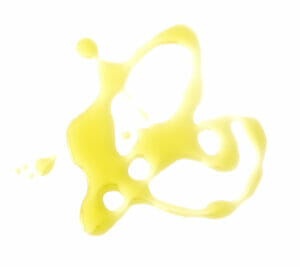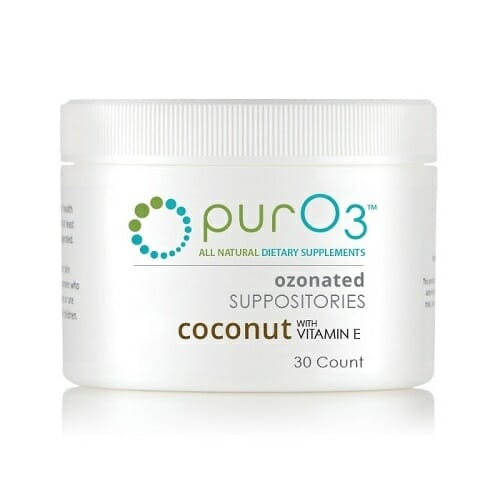Is Ozonated Olive Oil Safe?

It may be surprising to learn but there are practical applications for this molecule—in addition to its UV blocking capabilities, it reacts with bacteria and fungi to render them inactive.
Since its discovery as an antimicrobial, people have been trying to use it in the body in various forms with varying (and sometimes disastrous) results. One of the more recent inventions involves infusing ozone into oil for cosmetic or internal application but are ozonated olive oils safe?
Table of Contents
Is There a Difference Between Ozonated Oil and Ozone Therapy?

It is a highly reactive gas that, upon contact with pathogens, renders them inactive. Due to this quality, in 1896, Nicola Tesla, believing that ozone would purify the air, started the Tesla Ozone Company to manufacture ozone generators that would pump the gas into indoor air.

One of the earliest inovators of ozone therapy and ozonated oil, Nikola Tesla is often regarded as the greatest inventor ever to live.
There was one big caveat—inhaling ozone is not good for the body, nor is “ozone therapy”—injecting the gas directly into the blood in an effort to clean it—these methods are decidedly unsafe.
Since ozone has antibacterial qualities but the inhalation and injection of ozone is harmful, ozonated oils were created. By adding the molecule to a carrier oil, the ozone is trapped within the liquid. This eliminates the possibility of breathing in the gas and diffuses it so you receive a less intense dose but can still benefit from its germ fighting properties.
Are There Benefits to Ozonated Olive Oil?
Possibly being looked over due to confusions with ozone therapy, there aren’t too many widely published, peer-reviewed studies on ozonated olive oil.
A 2020 review of the literature available did find the strongest evidence for the antimicrobial effect of ozonated olive oil noting “ozonated oils have demonstrated activity and can be proposed for use in the prevention and treatment of chronic local infections, in appropriate formulations and in controlled cases, as an alternative to topical antimicrobial agents.”(1) The same review noted that the antifungal properties of ozonated oil, specifically with candida, were discovered in 1990, and were reinforced a decade later when used against aspergillus.
As a topical cream, ozonated olive oil can be used as a moisturiser and to reduce sun damage. There are two thoughts behind this use—ozone in the atmosphere protects the earth from ultraviolet radiation and olive oil on its own may have UVB radiation reducing capability (2). If you are looking for a rich salve PurO3 Ozonated Olive Oil combines the antioxidant benefits of olive oil with those of ozonated olive oil for a powerhouse combo.
Since skin types vary, some users prefer our Organic Ozonated Coconut Oil over olive oil for its extra moisturising properties. Coconut oil has its own UV blocking capabilities, some studies suggest up to twenty percent of the sun’s UV rays are blocked, so it’s that much more powerful.

Is Ozonated Olive Oil Safe?
The previously mentioned 2020 survey ended with the author’s conclusion that “ozone has provided a great deal of compelling evidence for its use in topical administration and has an appropriate safety profile, especially when administered as ozonated oil”.
It is important to note that the risks associated with ozone consumption rise as the concentration of ozone introduced rises so the safety of the product changes with the application technique. In general, topical application to normal skin is the safest while application to more sensitive tissues (the lips, vagina, or anus) can increase the likelihood of a reaction.
If you have a concern that requires direct application (like candida) a suppository may be best, with the caveat that it will increase the absorption of ozone. This is why Pur O3 Ozonated suppositories have been designed to be as gentle as possible while still giving the best of the antibacterial properties of ozonated oils and keeping side effects to a minimum. With an addition of vitamin E, they are extra nourishing to the skin and their coconut oil formulation is best for sensitive skin areas.
Is Ozonated Olive Oil Safe During Pregnancy?
Even if you have used ozonated oils before, the body changes drastically during pregnancy and we can’t recommend them. Also, if you’re breastfeeding, it is best to give them a pass as it is unknown whether or not ozone can be transmitted through breast milk and what harm, if any, it may do to a growing child.
Ozonated oils are a great antimicrobial tool but they are not entirely risk free. To keep any risks at bay make sure you use high quality products with gentle formulations and avoid naturopaths that tout ozone therapy as a cure for anything.

Click here to learn more about PurO3 Ozonated Coconut Oil with Vitamin E Suppositories.
Thank you for taking the time to read Is Ozonated Olive Oil Safe?
Please note: All information presented to you in this website is intended for your general knowledge only and is not a substitute for medical advice or treatment for specific medical conditions. We cannot, and will not give you medical advice. We strongly recommend you consult your physician for any and all specific health issues. If you have any questions or contributions, please contact us via email or phone-call. We are constantly looking for new information to promote wellness – and hearing from you would make our day.
Live Vibrantly!

